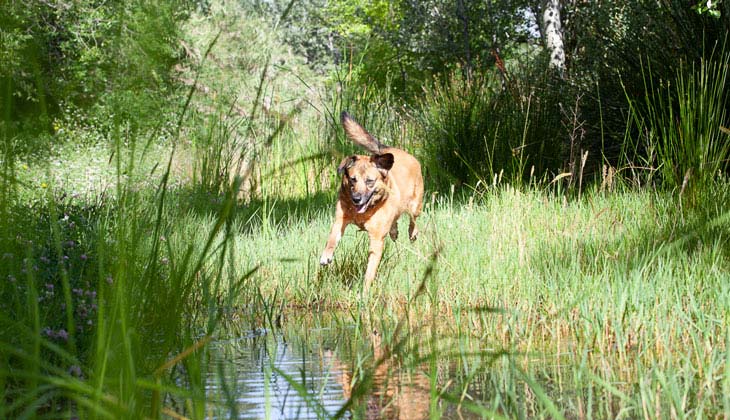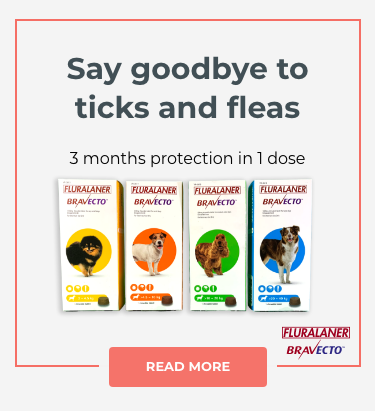Diseases Spread by Pests – An Emerging Concern for our Pups
HEALTH & PROTECTION
4 Jun, 2022
5 minutes

As a dog owner, you are probably all too familiar with the nuisance of flea bites or the worry over ticks. But did you know that today’s fleas and ticks may be part of a group of parasites that are rapidly spreading new illnesses, known as “vector-borne diseases,” many of which also have the potential to spread from parasites to humans?
A “vector” is a parasitic organism which spreads infection by carrying pathogens (disease or germs) from one host to another. In the case of vector-borne diseases (VBD) in dogs, infectious diseases are spread between animals by parasites such as fleas, ticks, mosquitos, and sandflies. These pests all belong to the biological group arthropods, and they act as shuttles, carrying disease-causing organisms between animals.

It used to be that vector-borne diseases were primarily a health concern in tropical and subtropical regions of the world. But these infections are increasingly showing up in new areas and more dogs are at risk for exposure. What is more, veterinarians may encounter a dog with an infectious disease they have never even seen before. Canine vector-borne disease represents a complex group of diseases, some of which cause serious clinical symptoms in dogs, and some have the potential also to infect humans from the same parasites and become a public health hazard.
The term “zoonotic” is used to describe a vector-borne disease that can be transmitted to people. These infections occur when vectors, animal hosts, climate conditions, pathogens and susceptible human populations all exist at the same time, in the same place, and people are also exposed to the bites of parasites.
Global seasonal change is among the reasons experts point to as explanation for the increase in vector-borne diseases in dogs. As climates change, the geographic range where parasites can survive changes as well. Human activities are also changing. People and dogs are moving more often and could potentially be bringing infected fleas and ticks with them into new regions.

HOW DO I PROTECT MY DOG FROM THESE DISEASES?
The best way to protect your dog from contracting one of these parasite-spread diseases is through prevention. Fortunately, there are many highly effective treatment options available that protect dogs from ticks, fleas, and flying insect vectors.
- Medications. Treatments are available through your veterinarian that offer safe and effective protection against both ticks and fleas. These treatments work by killing biting pests before they can transmit disease agents through their feeding.
There are also medications to protect dogs against infection from the heartworm parasite, which is transmitted by mosquitos. These treatments work by killing the juvenile stages of the heartworms when they enter the dog at the time of the mosquito bite. Heartworm prevention medications can be combined with flea and tick products as a treatment option.
- Repellents. These products are applied to your pet’s skin and work to protect your dog against flying insects, such as mosquitos and sandflies, by deterring the parasites from landing on them in the first place. Some repellents can be washed off in a bath or in the rain and lose efficacy. Collars with repellent action are also available, but these do not offer the same nose-to-toes protection as some of the newer products.
- At Home Protection. Because mosquitos lay eggs near water, it’s always a good idea to empty any standing water from your yard, including from trash cans, buckets, and toys.

To control ticks, consider the following measures:
- Clear bushes, tall grass and fallen leaves from around your home and mow the lawn often.
- Use wood chips or gravel to separate your patio from wooded or brushy areas.
- Remove plants that attract deer and put up a fence to keep deer out of your yard
- If your dog has been playing outside and you’re concerned about ticks, ask your veterinarian to show you how to check his or her skin and remove ticks, if necessary.
Overall, if you have concerns about vector-borne diseases or any questions about flea or tick treatments for your dog, then the best approach is to consult your veterinarian for the treatment choices in your area.
RECOMMENDED
POPULAR PAGES





